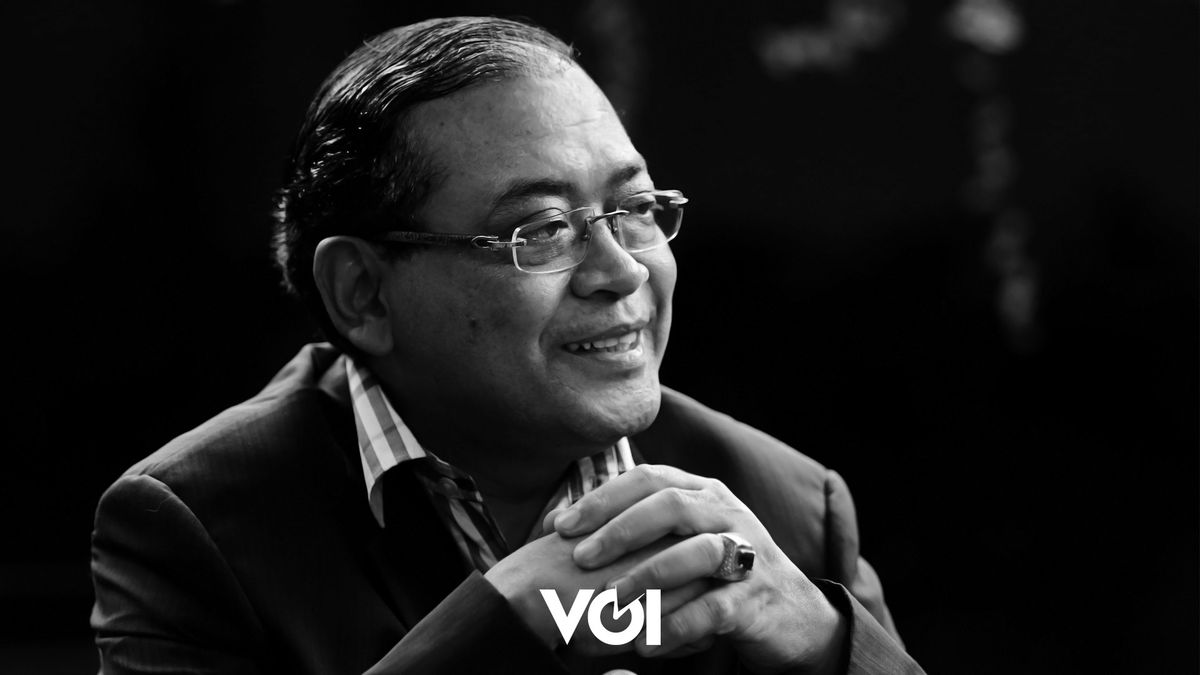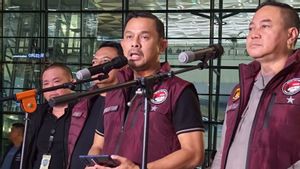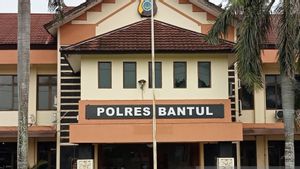The public has the right to obtain information from public institutions and non-public institutions that use public funds. This is according to the Chairman of the Central Information Commission (KIP) Dr. Ir. Donny Yoesgiantoro, MM., MPA., it is important for the public to know the policy direction of public institutions. When the public is enlightened from the information perspective, it will form information security and ultimately strengthen national resilience.
***
According to Donny Yoesgiantoro, information must be placed as a public good, meaning that it must be non-escludable and non-rivalry. “Two things must be done so that an enlightened society and an informative society are formed. If this informative society is formed, the end is information security. Information security is part of national security," he said.
According to the website of the National Defense Institute (Lemhanas), national defense is the tenacity and endurance of a nation that contains the ability to develop national strength in the face of all threats both coming from outside and coming from within that directly or indirectly endanger the survival of the nation and state. .
So far, national security includes Ipoleksosbudhankam (Political, Socio-Cultural Ideology and Defense and Security). Now with the development of technology and information, there is one more technology resilience added. "Information security is under technology resilience," explained Donny.
Based on Law No. 14 of 2008 concerning Openness of Public Information, the public has the right to obtain information from public bodies other than those that are excluded. Still under the same law, things that are excluded are information that can harm the state. Then information related to the interests of protecting business from unfair business competition. Also information relating to personal rights. And information related to job secrets. And the requested public information has not been mastered or documented.
Currently, continued Donny, the community is still not well informed. Therefore, the existence of KIP and KI at the provincial and district/city levels is still needed so that the entire community is well informed. To Edy Suherli, Savic Rabos and Rifai from VOI, Donny Yoesgiantoro shared ideas about KIP's work in general and its relation to actual problems such as the emergence of the ACT case, the Public Information Openness Index (IKIP), the role of the Information Commission ahead of the 2024 general election and others. This is an excerpt from his interview when he was met last week at a cafe in Cinere, Depok, West Java.

Currently, how is the public awareness of information disclosure? Has the objective of Law No. 14 of 2008 on Public Information Openness, which is to encourage public involvement in public policy-making, been achieved?
I have to explain the position of KIP first. KIP stands in the middle between public and public bodies. The public agency has an obligation to tell, to disclose all information except for exempt information. While the public has the right to information (right to know). The information must be placed as non-escludable meaning that there should not be any obstacle to getting the information except the excluded information. Then non-rivalry means that in obtaining public information there should be no competition. For example, people with special needs should not feel competitive with people without special needs in accessing information.
On several occasions I have seen that this has been applied by several public agencies and ministries. At the Ministry of Agriculture there is the Silaura program (Sound Information Service System), at BPKP there is Larisa (Public Information Service for People with Disabilities). The point is that people with special needs are also entitled to information.
The information must be placed as a public good, meaning that it must be non-escludable and non-rivalry. These two things must be done so that an enlightened society and an informative society are formed. If this informative society is formed, the end is information security. Information security is part of national security. So far, national security includes Ipoleksosbudhankam (Idiology, Politics, Social, Culture and Security Defense), now there is one more technological resilience added. Information security is under technology resilience. The public must get more priority, because our principal is the people. People pay taxes, so they have a right to information.
Has it been achieved?
If all of our society is well informed, KIP is no longer needed. Now we are getting there with public information service standards. Operator (Information and Documentation Management Officer) and the implementation is the activity of disseminating information. We see and monitor the process of disseminating this information. Now the direction is correct, but the results are not optimal.
Article 3 of Law No. 14 of 2008 states that the public has the right to obtain information, except for those that are excluded. What are the exceptions?
There are three categories of information, namely those that must be prepared periodically. And some are immediate and available. There are several categories of public bodies that can be disclosed, including executive, judicial, political parties, and non-governmental institutions that use public funds. Each of these public bodies has its own policy regarding what information is excluded.
The person receiving information from the public body must clearly state the source. This information can be used for individual or social interests. For misuse of information there must be sanctions.

In the case of ACT, how do you see it, have they been open to conveying work and financial programs until the end of the case?
The domains of KIP are all public bodies or non-public bodies but they use funds from the public. This is the domain of KIP to enter and be included in our monitoring and evaluation (monev) object.
In the policy issue, there is a trending issue, there is also a rhetorical issue and a trending topic. Like the case of ACT, it appears suddenly. We at KIP have a study and policy team tasked with identifying cases of this kind. However, we are not careless to respond because the case is still being handled by the authorities and has not yet signed up. And KIP will be strict on information services only, because public services carried out by ACT have entered the territory of the Ombudsman Institution.
So that cases like ACT don't happen again, what should the public do?
Law No. 14 of 2008 concerning Openness of Public Information was born based on transparency, openness, accountability, and public participation. From year to year there are changes, this law is a policy product and in its development from year to year is this law able to accommodate cases that arise, including ACT. Because the current era of openness is different from the era of openness in 2000 or 2008 when this law was passed. So this is an input for us to look in more detail at new cases like what happened to ACT.
During your leadership period as Chair of KIP, what programs will be implemented?
After I joined KIP, and was entrusted with being the chairman, what had been good so far would continue. In accordance with the Law, we will improve the Public Information Service Standard. We will continue with the Information Management and Documentation Officer, and we will also improve the resolution of information disputes. What I must underline is not only quantity, but also quality. When we talk about quantity, we talk about output and when we talk about quality, we talk about out come. My term is out come follow out put. If the out come is big, the out put must also be big.
KIP has also carried out the Public Information Openness Index (IKIP) which has been running twice in 2020 and 2021. For 2022, we will do it again.
Ahead of the 2024 election, what is the most important thing to open in election matters?
Some time ago I met the Chairman of KPU Hasyim Asy'ari, he mentioned the Head of KIP about the Sipol application (Political Party Information System) which voices information disclosure to the public. There are also applications that can check whether our NIK was used or not by certain political parties. We will make an MoU with the Chairman of the Press Council, KPU, KPI, and Bawaslu so that the public knows that the election involves them. Elections are also transparent and accountable. As is the principle of our election; direct, public, free and confidential.
Next, we will conduct a working meeting involving 34 Chairs and Deputy Chairs of Provincial KIPs and 5 representatives from regencies and cities throughout Indonesia. Elections are one of our sub-themes, there are also institutional issues, international cooperation, the post-COVID-19 economy. This Rakernis will be our foundation towards the National Coordination Meeting which will be held in October 2022.
Recently KIP released a public information disclosure index (IKIP) in each province, there are three provinces that won the best index: West Java, Bali, and NTB. While the worst is Maluku. What is assessed in the preparation of this index?
There are three IKIP variables and 85 sub indicators and 17 indicators. The variables are law, politics and economics. From this it can be seen what kind of public information disclosure is in the regions. This IKIP has only been conducted twice, in 2020 and 2021. Although there are rankings, this IKIP is not a contest. The problem is that each province has a different population. Bali is only 5 million, compared to West Java's 50 million.
The value of IKIP 2021 is 74.43, an increase from the previous year which was 71.37, what does this mean, can you explain?
From 2020 to 2021 the IKIP has increased. Because during a pandemic, the flow of information is quite high. It is natural that there is an increase.
So far, what is the role of the millennial generation in information disclosure? What do you expect from them?
The young people have good attention, but they haven't seen the details of KIP's role. We will involve millennials in socialization. We will go to college and also high school which incidentally they are millennials. Later we will prepare a course on law and information disclosure. Then it will develop into other subjects such as Natural Resources and Information Disclosure. Millennials must know that information disclosure is guaranteed by the Constitution.
The Meaning of Music, Chess and Golf for Donny Yoesgiantoro

Busy with activities as the Head of the Central Information Commission (KIP) and also as a lecturer at several universities. Ir. Donny Yoesgiantoro, MM., MPA, many confiscated. In fact, he missed the atmosphere like before when he could still relax by playing chess and golf. Now it's just a matter of enjoying music that you can do on the sidelines of your work routine.
Like last Sunday afternoon, he was so happy when the home band in the cafe sang his favorite songs. Occasionally he sings along with the vocalist who sings the song Don't Look Back in Anger from the band Oasis. And when the song was finished nicely, he did not hesitate to give his applause.
It turns out that the man who was born in Semarang, April 16, 1967, is a big fan of the band from Manchester, England. "After this I asked for the song Stand by Me," he said asking the home band to sing another song from Oasis. Without refusal, the song Stand by Me again enlivened the twilight atmosphere at Ol' Pops Caffee, located in Cinere, Depok.
“Music can make us heal. We can release stress due to work by making music or enjoying music,” he said. “We can also express ourselves through music. Those who like loud music have rock music, those who like slow music have mellow music,” continued the man who can play guitar while singing.
Regarding music, since high school he has been active with music and vocal activities. "When I was in junior high and high school in Semarang, I was part of the core team of the school vocal group," said Donny, who attends Pangudi Luhur Middle School and High School in Semarang.
His motivation was to make music when he was in school, because many people complained about the musician. He also wants to be like a popular musician and have a lot of fans. In addition, through music, he can also express his heart. "If you're sad, sing while playing the guitar. The song is a Sad Story on Sunday,” he recalled.
Chess

Raised by a military father and a teacher, according to Donny, this is the right mix, one is firm and the other is patient. “My mother always emphasized the importance of education even though we have this and that hobby. Because through education we can change the world,” said the Head of the Center for Energy Security Studies, Defense University, 2017-2022.
To his four children, he also emphasized the importance of education. He supports wherever his children want to go to school, even if they go to another country.
One thing that Donny instilled in his children was philosophy at work. “If you work, don't think about getting rich by working. But enjoy the work you do. If you are happy with the work you are doing and other people can enjoy the work, then there will be blessings from there. I am absolutely sure of that,” said Donny, who likes to play chess.
How did you get to play chess? “I was taught by my grandfather who was a barber. While waiting for customers he teaches his grandson how to play chess,” he said. Unlike his grandfather, apart from self-taught chess, Donny and his brother also studied the theory of playing chess, which is widely practiced by professional chess players.
The philosophy of chess that was learned as a teenager, it can still be applied today. “Chess teaches us to look ahead. To achieve that dream, our strategy must be good, the defense must be strong. I used to fantasize that my children would be able to go to a better school than me. And that has been achieved,” said a lecturer at the School of Global Strategic Studies (S2), University of Indonesia (UI).
Golf

Apart from chess, a sport that also has a philosophy for him is golf. That's why Donny played golf regularly a few years ago with his relatives and colleagues. But now he can no longer join his friends on the golf course.
“Now my friends who used to play golf together have left me since I became the Chairman of KIP. My time is already occupied in KIP. Finally they gave up asking me to play golf,” said the man who has worked in various national and multinational private companies apart from being a lecturer.
The philosophy of the golf game, said Donny, is against yourself. "If one day we play badly, we can't keep thinking about it, we have to continue. Looking ahead, there are still games to be completed. If we can't get the ball in, it's okay, don't regret it and don't blame other people," he continued.
From the golf course, said Donny, one's character can be seen. "Some are angry, patient, cheat, and so on," he said. "Japanese bankers if they want to give credit, prospective credit applicants are invited to play golf first," he added.
Donny's best achievement in playing golf is succeeding hole in one (putting the ball from the hitting spot called the tee box into the hole in one stroke) on one of the golf courses in Nusa Dua, Bali. “Because I was able to hole in one, my name was written on the golf course and I got a prize too,” he recalls.
Whatever happens in life, he said, he should be grateful. "Because there are lessons to be learned from every incident, whether it's good or bad," he said. "In addition, what should not be forgotten are efforts, prayers and family support," said Donny Yoesgiantoro, ending the conversation.
“The information must be placed as a public good, meaning that it must be non-escludable and non-rivalry. These two things must be done so that an enlightened society and an informative society are formed. If this informative society is formed, the end is information security,"
The English, Chinese, Japanese, Arabic, and French versions are automatically generated by the AI. So there may still be inaccuracies in translating, please always see Indonesian as our main language. (system supported by DigitalSiber.id)








